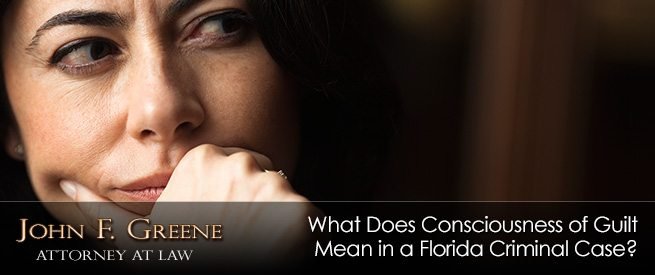
In court, as in life, perception can make all the difference. The ultimate example: consciousness of guilt, which holds far more influence over the modern court system than it should. This concept posits that certain defendant behaviors automatically indicate guilt.
Over the years, assumptions surrounding consciousness of guilt have influenced a variety of criminal convictions, sometimes convincing judges or juries that defendants are guilty despite the facts of the case suggesting otherwise. Because this presumption can be so damaging, it must be fully understood so that defendants can minimize its influence.
What Does Consciousness of Guilt Look Like In Criminal Proceedings?
Perceived consciousness of guilt can take many forms. Typically, it is believed to involve any behavior that implies that the defendant has always recognized his or her guilt — and acted accordingly at the scene of the crime. For example, an alleged offender who attempts to elude police officers may be deemed conscious of guilt. The state’s Supreme Court has weighed in on this concept, explaining that evidence of flight “would be relevant to the question of the defendant’s guilt.” Likewise, as far as local courts are concerned, spoliation (or tampering) of evidence suggests awareness of guilt.
How Do Assumptions Regarding Consciousness of Guilt Impact Criminal Cases?
Florida prosecutors often attempt to infuse consciousness of guilt into criminal cases. The goal? To prove that the defendant’s actions were purposeful and not merely coincidental. In doing so, prosecutors can cast doubt on the defendant’s motives, even when clear proof of innocence exists.
Because consciousness of guilt can play such a harmful role in criminal cases, it is crucial to avoid all suggestions of this concept. Seemingly minor statements or behaviors may be perceived as signs of guilt. These could have a detrimental impact on cases that, on the defendant’s end, seem clear-cut.
In the event of an arrest, it’s important to cooperate with law enforcement officials while also taking steps to avoid accidental self-incrimination. When in doubt, resist the urge to flee or otherwise evade the police. Instead, remain calm and polite — but insist on speaking with a lawyer before submitting to questions. Remember, it is far more difficult to cast a cooperative person in an unflattering light.
The role of personal perception may not be ideal in the modern courtroom, but it must be accounted for to ensure the best possible case outcome. The more you can do to foster a positive impression, the more likely you are to achieve a favorable resolution.
Following your arrest, make every effort to help your criminal defense attorney locate evidence of your cooperation with law enforcement. Witness statements and video recordings can prove especially valuable. If you believe you have engaged in any activities that could make you appear conscious of guilt, let your attorney know as soon as possible. If aware of the situation, your lawyer can take extra steps to reduce the likelihood of your previous actions negatively impacting your current case.
As you deal with the complications of Florida’s criminal justice system, don’t hesitate to seek support from a lawyer who cares. Attorney John F. Greene employs a compassionate approach when conducting consultations but also offers aggressive representation in court. His approach paves the path for desirable outcomes in a variety of complicated criminal defense cases. Call 850-213-2673 today to learn more about his background as a Destin criminal lawyer — or feel free to get in touch online.










